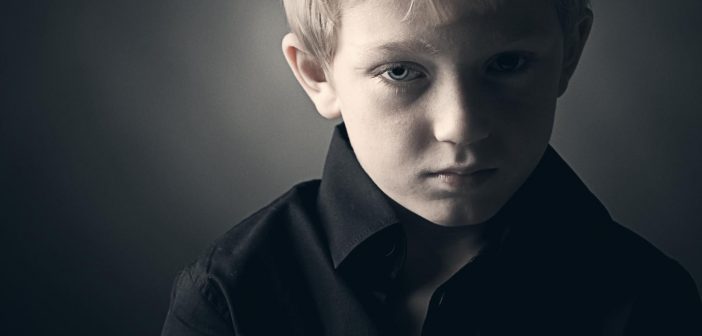Bullying is an age-old phenomenon – it is scary and humiliating. Parents often worry if their child is safe at school and if he/she is being victimised by a bully. Of course, it is unimaginable to parents that their child may himself/herself be the bully. Either ways, it isn’t an easy situation to deal with. But it is important to be alert to any signs of your child being a bully or being a victim of one.
Bullying can emerge as early as elementary school with the formation of a group of kids. The behaviour, experts agree, peaks in middle school, when this group becomes omnipotent. There is a need to establish social status and dominance at this time. However, experts say that bullies are tough to spot as they’re likely to be charming around adults. They are often street-smart and socially savvy and find bullying to be an easy ticket to social status. By the time they reach high school, bullies use subtle and manipulative methods to put others down.
 Indications that your child might be a bully:
Indications that your child might be a bully:
- She (or he) is aggressive, even toward adults
- She likes pushing around and teasing other children
- She dominates and manipulates
- She is a glib talker in tricky situations
- She is easily annoyed
If you have recognised and accepted that your child could be a bully, don’t beat yourself up, don’t play the blame game and don’t justify the behaviour. As a parent you have the power to change this behaviour. You can create an environment of tolerance, empathy and respect at home; provide predictable, consistent, matter-of-fact consequences every time your child bullies others; and spend time with your child every day to establish closeness and a sense of security and love.
Indicators that your child might be a victim of a bully:
- He/she is reluctant or refuses to go to school
- Bottles up when you try to discuss school
- Exhibits conspicuous behaviour change after computer time or a phone call
- Avoids participating in after-school activities or playing with old friends
- Shows signs of physical distress such as headaches, stomach-aches, or nausea
- Goes to the infirmary to avoid attending class
- Suddenly shows poor performance in school
- Broods and prefers to be alone
- Uses bad language, uncharacteristically so
- Wants to alter a long-standing routine, like riding the bus to school
- Asks for more lunch or transportation money without a clear explanation
- Has inexplicable bruises or injuries
 So how do you deal with your child being bullied? It is ideal if you let your child come up with ideas to deal with the bully in question. Ask your child what would make them feel better about the situation? Let them figure out through this discussion how retorting with name-calling or aggressive behaviour will only escalate the bullying. If you can teach your child how to deal with a stressful situation like this you would be teaching him/her a skill for life. Get in touch with your child’s teacher pretty early. It is likely the teacher is unaware of this behaviour. Make an appointment and follow up with the teacher. Share with your child the actions taken to remedy the situation. If, however, your child receives a physical threat it is imperative that the police is approached. Any threat to a child can instil a lasting fear and insecurity. That is something you must avoid. More importantly, let your child know that he/she can take away the power from a bully by showing disapproval publicly. A bully is essentially looking for peer approval and when that is not attained, the bullying stops.
So how do you deal with your child being bullied? It is ideal if you let your child come up with ideas to deal with the bully in question. Ask your child what would make them feel better about the situation? Let them figure out through this discussion how retorting with name-calling or aggressive behaviour will only escalate the bullying. If you can teach your child how to deal with a stressful situation like this you would be teaching him/her a skill for life. Get in touch with your child’s teacher pretty early. It is likely the teacher is unaware of this behaviour. Make an appointment and follow up with the teacher. Share with your child the actions taken to remedy the situation. If, however, your child receives a physical threat it is imperative that the police is approached. Any threat to a child can instil a lasting fear and insecurity. That is something you must avoid. More importantly, let your child know that he/she can take away the power from a bully by showing disapproval publicly. A bully is essentially looking for peer approval and when that is not attained, the bullying stops.
A bully today may be the bullied tomorrow. It is all a part of growing. You, as a parent, can help your children face the situation and flourish into kind, well-adjusted and tolerant adults.







